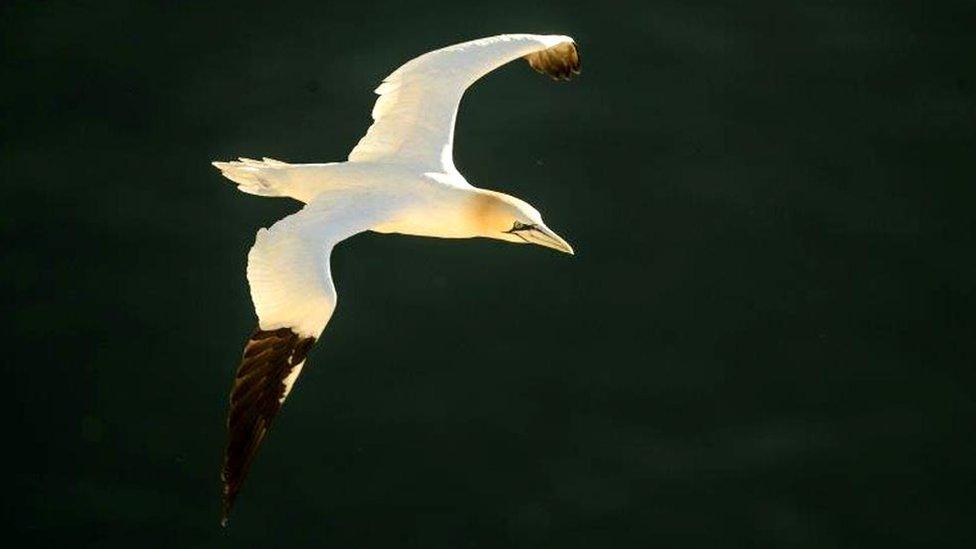Seabird numbers 'at risk due to fishing' according to Aberdeen study
- Published

World fisheries should be more strictly managed to relieve pressure on seabird numbers, Aberdeen experts have said.
A study said there has been a 70% decline in seabird populations due to a combination of the fishing industry, pollution and habitat destruction.
The University of Aberdeen team looked at 1970-1989 and 1990-2010 timeframes.
They were assessing the degree of competition seabirds faced for prey species such as anchovy, sardines, mackerel, squid, krill and crustaceans.
The team found that the total annual seabird consumption of these decreased from 70 million tonnes to 57 million tonnes, while annual fishery catches went from 59 million tonnes to 65 million tonnes.
'Alleviate competition'
Dr Aurore Ponchon, who co-led the study, said: "Our research shows, that despite the decline of the world seabird community between 1970-1989 and 1990-2010, competition with fisheries remained sustained. This competition was even enhanced in almost half the oceans.
"This enhanced competition, in addition to other factors such as pollution, predation by invasive species on chicks, the destruction and changes in their habitat by human activities and environmental changes caused by climate change, puts seabirds at risk, making them the most threatened bird group, with a 70% decline over the past seven decades.
"This study calls for an improved management of the world's fisheries to alleviate competition pressure on seabird populations."
The study, published in Current Biology, also involved scientists in France and Canada.